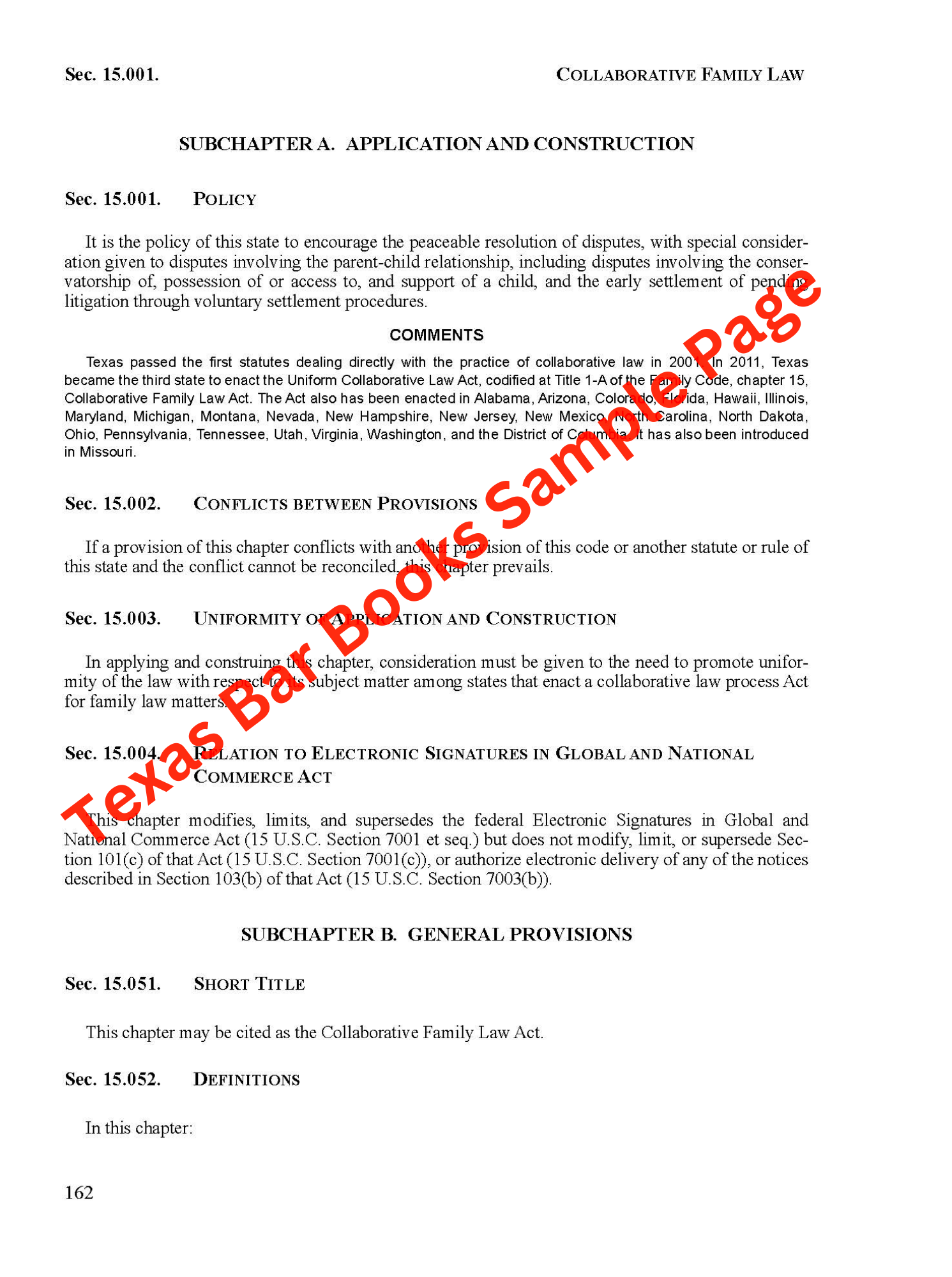Understanding Bill of Review in Texas Family Law
In Texas family law, a Bill of Review is a legal procedure that allows a party to challenge a final judgment. This tool is vital for individuals who believe that a decision made in their case was unjust or based on errors. Whether due to new evidence or a misunderstanding of the law, a Bill of Review offers a pathway to seek a remedy. Understanding this process can be essential for anyone navigating the complexities of family law in Texas.
Definition of Bill of Review

A Bill of Review is essentially a request to a court to re-examine a final judgment. This type of legal action is often used when a party feels that they were wronged in the initial proceedings. Here are some key points about the Bill of Review:
- Purpose: To correct errors or injustices in a previous court ruling.
- Nature: It is not a new trial but a reconsideration of the prior decision.
- Timing: Typically must be filed within a specific timeframe after the original judgment, often within four years.
Understanding how a Bill of Review functions can help individuals grasp their rights and options when dissatisfied with a court decision.
Reasons to File a Bill of Review

There are several valid reasons why someone might consider filing a Bill of Review. Here are some common situations where this legal action may be appropriate:
- New Evidence: If new evidence emerges that could significantly alter the outcome of the case.
- Procedural Errors: Mistakes made during the trial process that may have influenced the judgment.
- Lack of Representation: If a party was unrepresented or inadequately represented in the original proceedings.
- Injustice: Situations where the final judgment seems unfair or inequitable.
Filing a Bill of Review is a way to seek justice and ensure that all relevant factors are considered. If you think your case warrants a review, consulting with a qualified attorney is essential to understand your options.
Eligibility Criteria for Bill of Review
To file a Bill of Review in Texas, certain eligibility criteria must be met. Understanding these requirements is crucial for anyone considering this legal action. Here are the primary criteria:
- Final Judgment: The Bill of Review can only be filed against a final judgment. Intermediate rulings or temporary orders do not qualify.
- Timeliness: Generally, a Bill of Review must be filed within four years of the final judgment. If you miss this window, you may lose the right to seek a review.
- Legal Standing: The party filing the Bill must have been a party to the original case. If you were not involved in the initial judgment, you typically cannot file.
- Grounds for Review: There must be legitimate grounds for seeking a review, such as newly discovered evidence, procedural errors, or issues of fairness in the original ruling.
Meeting these criteria is essential for a successful filing. If you think you qualify, consulting with a family law attorney can help clarify your situation and guide you through the process.
Process of Filing a Bill of Review
The process of filing a Bill of Review involves several steps, and understanding them can make the journey smoother. Here’s a step-by-step overview:
- Consult an Attorney: It’s wise to discuss your case with a qualified attorney who specializes in family law.
- Gather Evidence: Collect all relevant documents, evidence, and information that support your claim for review.
- Draft the Petition: Your attorney will help you draft a petition for the Bill of Review, outlining the reasons and grounds for seeking a reconsideration.
- File the Petition: Submit the petition to the appropriate court along with any required fees.
- Serve the Other Party: Ensure that the other party involved in the original case is served with the petition.
- Court Hearing: Attend the court hearing, where you will present your case. Be prepared to provide evidence and answer questions.
Following these steps carefully can enhance your chances of a successful Bill of Review. Always keep communication open with your attorney throughout the process.
Common Challenges in Bill of Review Cases
Filing a Bill of Review can be complex, and there are several challenges that individuals may face. Here are some of the most common hurdles:
- Strict Time Limits: As mentioned earlier, the four-year deadline can catch many off guard, especially if they are unaware of this requirement.
- Proving Grounds for Review: It can be challenging to establish sufficient grounds for a review. The court requires clear evidence of errors or injustices.
- Opposition from the Other Party: The other party may contest the Bill of Review, complicating the process and potentially leading to a prolonged legal battle.
- Legal Complexity: The laws surrounding Bills of Review can be intricate, making it essential to have experienced legal counsel.
- Uncertain Outcomes: There is no guarantee that the court will grant the review or change the original judgment, leading to potential frustration.
Being aware of these challenges can help you prepare and strategize effectively. Working closely with your attorney will equip you with the necessary tools to navigate these obstacles.
Impact of Bill of Review on Family Law Cases
A Bill of Review can significantly affect family law cases, and understanding this impact is crucial for anyone involved in such matters. The primary purpose of filing a Bill of Review is to seek justice and correct perceived errors in a previous court decision. Here are some key impacts:
- Correcting Injustices: If a party believes they were wronged by a court’s ruling, a successful Bill of Review can rectify the situation, potentially leading to a fairer outcome.
- Influence on Future Cases: Decisions made during a Bill of Review can set precedents for future family law cases, shaping how similar matters are handled in the future.
- Emotional Relief: For individuals who feel they were treated unfairly, pursuing a Bill of Review can provide emotional relief and a sense of closure.
- Legal Clarification: The process can clarify legal standards and practices, contributing to a more consistent application of family law.
- Extended Timeframe: Engaging in a Bill of Review can prolong legal disputes, potentially delaying resolutions in family matters such as custody or division of assets.
Understanding these impacts can help individuals make informed decisions about pursuing a Bill of Review and its potential consequences on their family law cases.
FAQs about Bill of Review in Texas Family Law
Here are some frequently asked questions regarding the Bill of Review process in Texas family law:
- What is the time limit for filing a Bill of Review? Generally, you have four years from the date of the final judgment to file.
- Can I file a Bill of Review if I disagree with the outcome? Not automatically. You must have valid grounds, such as new evidence or procedural errors.
- Do I need a lawyer to file a Bill of Review? While you can represent yourself, having a qualified attorney is highly recommended due to the complexities involved.
- What happens during the court hearing? You will present your evidence and arguments, and the other party will have the chance to respond.
- Can I appeal the decision made on a Bill of Review? Yes, if you are dissatisfied with the court’s ruling, you may have the option to appeal.
These FAQs can provide clarity on common concerns surrounding the Bill of Review process and help individuals prepare for their legal journey.
Conclusion on Understanding Bill of Review
In conclusion, understanding the Bill of Review is essential for anyone involved in Texas family law cases. This legal tool offers a pathway to correct injustices and seek a fair resolution after a final judgment. Whether you’re considering filing a Bill of Review or just want to know your rights, being informed is key. Remember:
- Know the criteria: Ensure you meet the eligibility requirements before proceeding.
- Understand the process: Familiarize yourself with the steps involved in filing.
- Seek professional help: Consulting with a knowledgeable attorney can make a significant difference in your case.
By grasping the nuances of a Bill of Review, you empower yourself to navigate the legal system more effectively and strive for the justice you deserve.


